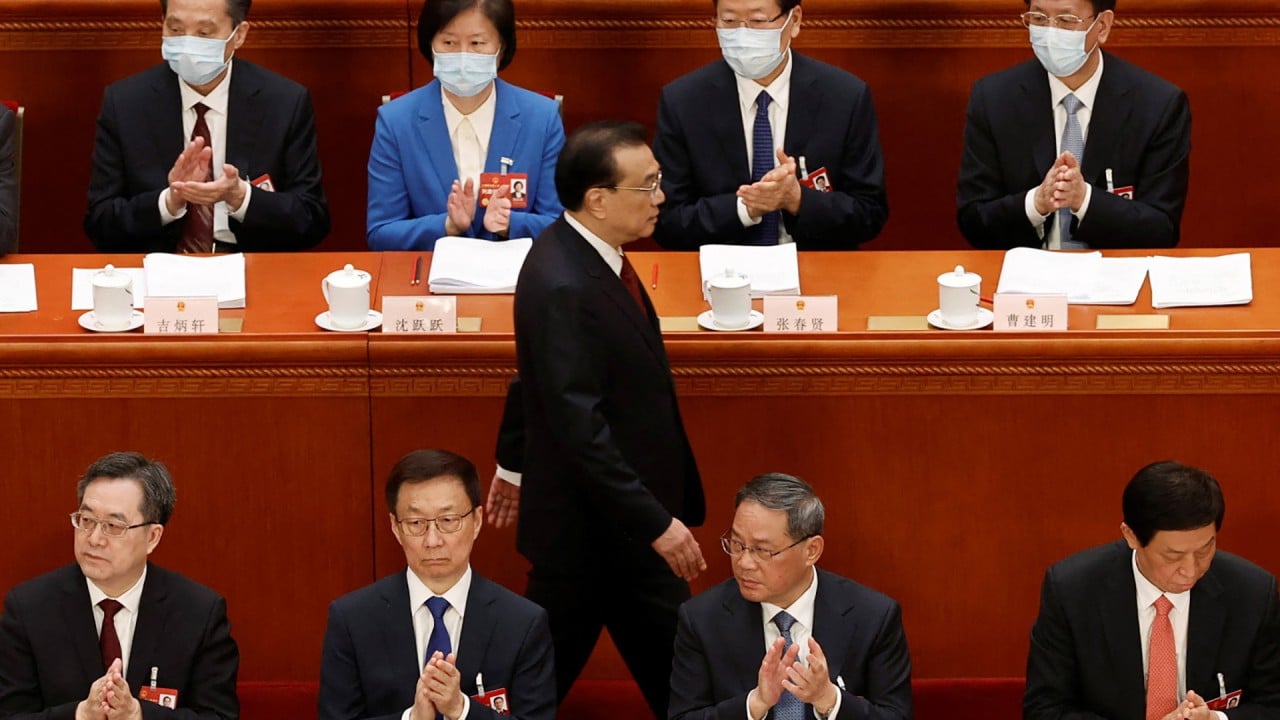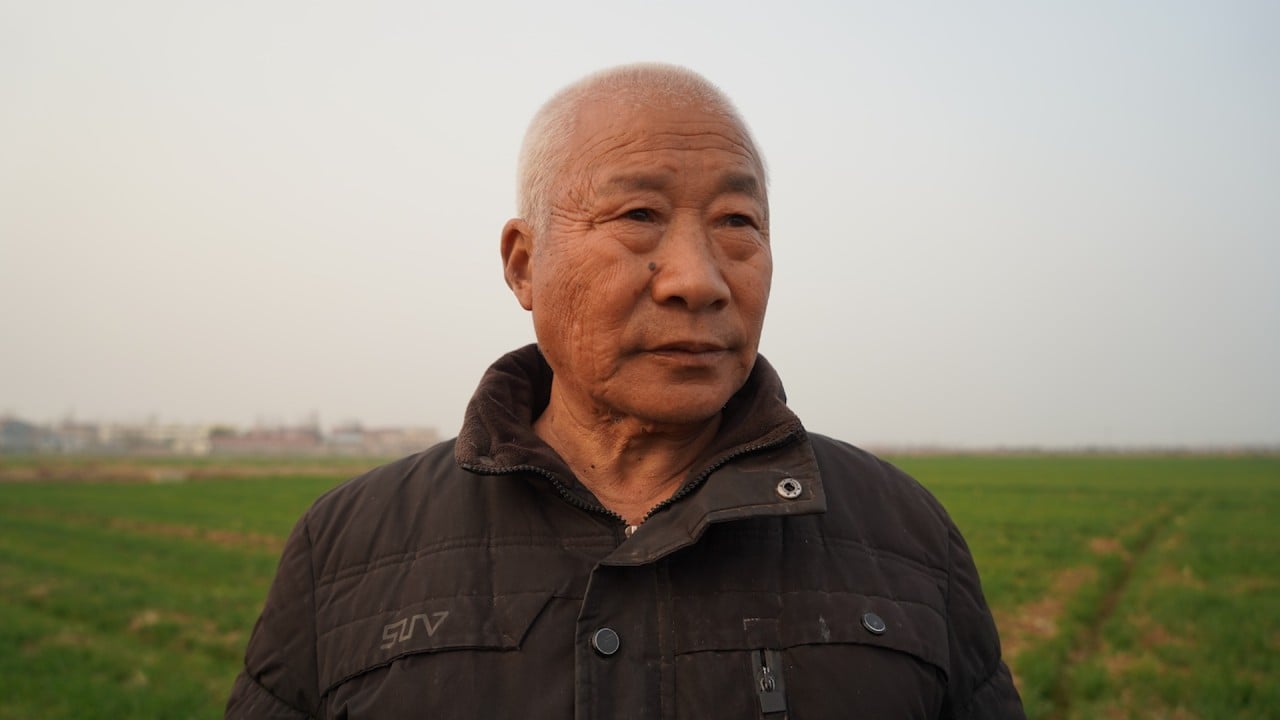
China’s ‘two sessions’ 2023: Xi Jinping’s call for ‘common prosperity’ risks going unanswered by Covid-weary private firms
- President Xi Jinping has urged entrepreneurs to give to charity and ‘share the fruits of growth’ as part of his ‘common prosperity’ drive
- But Xi’s message could find a muted reaction among private firms still recovering from three years of Covid disruptions and policy uncertainty
Economic uncertainty and concerns over transparency in China’s philanthropic sector have left many private business owners hesitant to answer President Xi Jinping’s call to support his signature initiative to reduce income inequality.
On Monday, at a meeting with private sector representatives during the “two sessions”, Xi urged entrepreneurs to give to charity and “share the fruits of growth” with employees as part of his “common prosperity” drive.
Private firms should “have a sense of responsibility, brotherhood and love, while being rich”, Xi told delegates from the All-China Federation of Industry and Commerce and the China National Democratic Construction Association, according to the official Xinhua News Agency.
He said private companies were as important as state-owned ones in the drive for equality and they must shoulder the same responsibility.
But Xi’s message could find a muted reaction among private firms still recovering from three years of business disruptions and policy uncertainty brought on by Beijing’s response to the coronavirus pandemic.
Rachel Wong, who runs an internet company with her husband in Shenzhen, said small- and medium-sized tech firms in the city were generally pessimistic about the economic outlook this year.
“Things still seem uncertain, so we will be conservative in investment and spending,” she said. “For business owners, the best philanthropy they can do this year is probably to be bold enough to invest, increase recruitment and offer a pay rise.”
China’s former paramount leader Deng Xiaoping popularised the slogan “common prosperity”, but its use has surged under Xi, the country’s most powerful leader in the past three decades.
The private sector needs to be consoled and confidence restored
“We’ve seen regulators crack down on business leaders and some of them donated huge amounts of money to charity,” Wong said. “But members of the general public have no way to know where on earth this money has gone and how exactly it’s been spent.”
Gao Zhendong, a Beijing-based investor focused on developing industrial estates across China, said the government should adopt a low profile in its push for more equitable wealth distribution for the time being.
“After all, everybody is facing a slowing economy. The private sector needs to be consoled and confidence restored,” he said.
“The common prosperity drive brings about worries and doubts and may lead to an exodus of wealth.”
In 2021, China had a bigger wealth gap than Europe, but slightly better than the US, according to a report published last year by the World Inequality Lab.
When considering income as well as stocks, bonds and property, the wealthiest 10 per cent of the Chinese population own about 70 per cent of total household wealth, it said.
While the government has not yet unveiled a specific tax taking from the rich to compensate the poor, business owners are bracing for a tightening of the tax regime.
Quan Heng, party chief of Shanghai Academy of Social Sciences, proposed at the National People’s Congress this week hiking taxes for the rich and lowering them for others as a solution to the problem of wealth inequality, according to an article on the academy’s website on Tuesday.
The taxman is coming with something new, and wealthy Chinese are scared
“The pressure on the rich from the common prosperity drive and the fourth phase of the Golden Tax System is tangible,” said Wong, the Shenzhen businesswoman.
Fan Gang, a prominent economist, noted in a recent article that top business leaders should not be the target in China’s pursuit of common prosperity.
“Many of the emerging rich people are owners of tech firms, whose huge wealth is built on greater talent and innovation … It’s inappropriate to pursue equal income by denying intellectual property, cracking down on tech firms or imposing high taxes,” he said in an article published last month by the China Society of Economic Reform.
The call for a more equitable society, though, was absent from Premier Li Keqiang’s government work report on Sunday.
We can only discuss how to cut the cake after ensuring it’s steadily growing bigger
“The priority at the moment is to walk out of the coronavirus pandemic and rebuild confidence, to make people believe things are improving, not to accomplish a long-term goal, which common prosperity surely is,” said professor Zhao Xijun, from Renmin University’s School of Finance.
“We can only discuss how to cut the cake after ensuring it’s steadily growing bigger. When a cake is not big enough, however you cut it will seem imperfect.”
As the economy has sputtered throughout the pandemic, charitable donations have taken a hit, according to some data.
‘A permanent home’: why a wave of wealthy Chinese is moving to Singapore
Donations dropped by more than 5 per cent in 2021 from a year earlier, according to a blue book on China’s philanthropy published by the Social Sciences Academic Press last year.
Tech giant Tencent’s 99 Giving Day, a major charitable event where individuals are encouraged to donate to those in need, witnessed a fall of 7 per cent and 15 per cent, respectively, in the total amount of donations and number of participants in September last year, the Tencent Foundation said.
While private businesses might become more reluctant, younger generations could contribute more due to better social awareness, said Kevin Chen, who runs an agency in Guangzhou for live streamers and social media influencers.
“There are more and more rich people in China, and the rich are getting richer,” said Chen, who is in his 30s.
“Many of the young rich celebrities who I know recognise the necessity to give a certain proportion of their wealth back to society.”
But for many businesses, philanthropy under common prosperity is driven by the need to create business opportunities and maintain a good relationship with the government, according to Billy Huang, who has invested over 100 million yuan (US$14.3 million) in Guangzhou’s healthcare system in recent years.
“After all, when your company’s expanded to a certain scale, it becomes a must for the owner to donate to charity. It does no harm to your relationship with the government and your social image, does it?” he said.
“Areas we’ve made donations include poverty alleviation, coronavirus control and the earthquake in Turkey, which may help us develop overseas markets in the future.”
Additional reporting by Mia Nulimaimaiti




